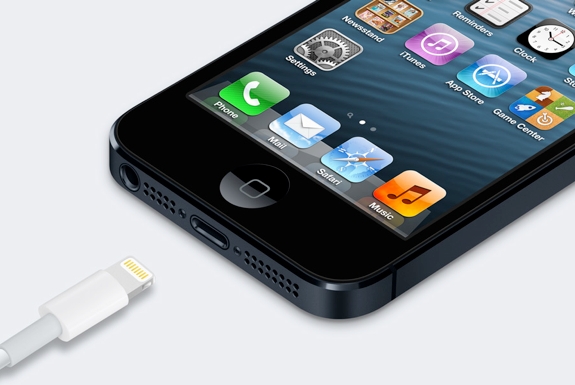UPDATE FIXES VERIZON IPHONE 5 DATA GLITCH; CUSTOMERS WON'T BE CHARGED FOR OVERAGES
Verizon iPhone 5 customers may have noticed an issue wherein their phones gobbled up extra cellular data when they were theoretically connected to Wi-Fi networks. Those customers now have two bits of good news: There’s a special software update that fixes the problem, and they won’t be responsible for unexpected charges related to unintended network overages related to the issue that spurred the carrier update in the first place.
10 HOT IT SKILLS FOR 2013
The number of companies planning to hire tech professionals continues to grow, with 33% of the 334 IT executives who responded to Computerworld's 2013 Forecast survey saying they plan to increase head count in the next 12 months..
APPLE WARNS ICLOUD USERS OF LOOMING STORAGE LOSS
Apple on Monday began reminding some iCloud users that they will soon lose the 20GB of free storage they'd received when they migrated from MobileMe.
Nook Video set for fall premier
Barnes and Noble Tuesday announced that Nook Video will premiere this fall in the U.S. and UK. The service will offer access to movies and TV shows for streaming and download.
Eight simple steps to make the upgrade to iPhone 5 easier
A little planning can save time - and voice messages - when you upgrade to the new iPhone 5
Saturday, November 3, 2012
Can a refreshed Google Wallet finally take off?
Tuesday, October 23, 2012
Apple plays hardball with iPad mini reveal
Another Apple frenzy
An invigorated Apple
Dropping Google Maps
Monday, October 22, 2012
Popular Android apps leak personal data, study finds
Wednesday, October 17, 2012
Samsung to push out Android 4.1 to Galaxy S III smartphones in US
Dates to roll out updates will be decided by carriers
Samsung Mobile on Wednesday said it would start rolling out Android 4.1, code-named Jelly Bean, to Galaxy S III smartphones in the U.S.
Galaxy S III smartphones run on Android 4.0, code-named Ice Cream Sandwich. The Jelly Bean update will be rolled out over-the-air and also via Samsung's Kies software. Individual carriers offering the Galaxy S III, including AT&T, Verizon Wireless, T-Mobile, Sprint and U.S. Cellular, will separately announce specific roll-out dates.
Google announced Android 4.1 in June, and vendors have just recently started rolling it out to smartphones and tablets.
Galaxy S III smartphones in Europe are already being updated to Jelly Bean. The updated OS offers a new user interface and new multimedia capabilities.
The OS is the first version built for tablets and smartphones. Compared to predecessors, Jelly Bean is faster, navigation is smoother, and an improved keyboard can better predict words being typed out. Other improvements include revamped notification and text and voice search capabilities. A new feature in Android 4.1 called Google Now provides voice search and also information on weather, traffic, navigation and other data in a single interface.
Samsung is also adding its own apps including "custom" integration of AllShare, which will allow wireless sharing of multimedia files between among devices including PCs, tablets and TVs, the company said. The phone maker is also building in technology to connect Bluetooth devices with just one touch.
Google already offers the Nexus 7 tablet with Android 4.1, and Asustek has pushed out the OS to its tablets. Motorola has pushed out Jelly Bean to some of its tablets and said it would update latest smartphones by end of the year. HTC has also said it would update its One smartphones to Jelly Bean in the future.
Tuesday, October 16, 2012
Sprint to begin $300 Samsung Galaxy Note II sales on Oct. 25









.jpg)


